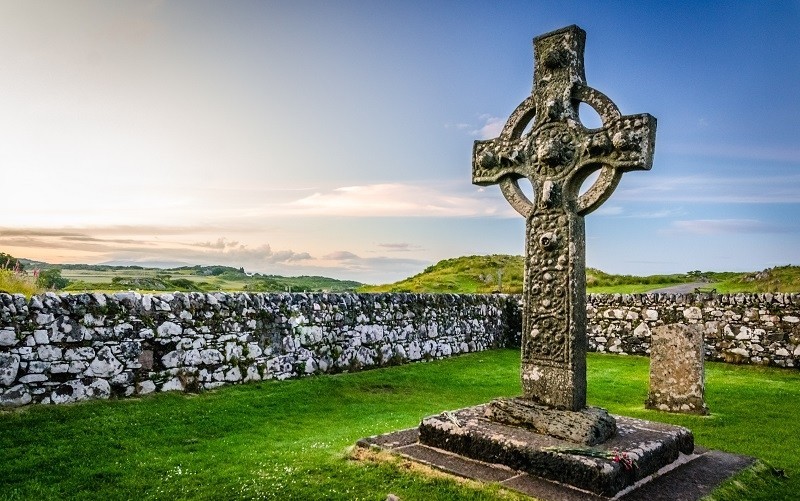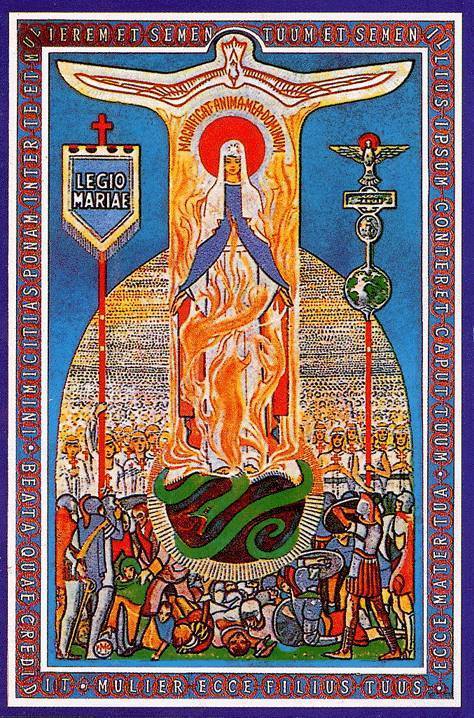Entry tags:
Mary's Room and Iolo's Christ

The Rational Animal
Let us recall that the root of the word "Man" is the same as the root of the word "Mind." Part of the definition of man is "a rational animal."
Morganwg's Christ
Let us also recall the progression of the soul in the thought of Iolo Morganwg. Every soul has its beginning in Gwynvyd, the luminous life, but descends to the depths of Annwn, the mineral creation and the very border of the Cythraul, the primordial chaos. Over the course of long ages, the soul rises from the cauldron of Annwn and works its way through the circles of incarnate life in Abred. Arriving at last at the level of humanity, the soul stands at at the border between Abred and Gwynfydd. The soul's work then is to release herself from the bonds of matter and restore herself to her proper divine place in Gwynfydd, which is the realm of Luminous Life.
The role of Jesus Christ in the soul's progression is described thusly in Barddas:
Teacher. Dost thou know what thou art?
Disciple. I am a man by the grace of God the Father.
T. Whence earnest thou?
D. From the extremities of the depth of Annwn, where is every beginning in the division of the fundamental light and darkness.
T. How earnest thou here from Annwn?
D. I came, having traversed about from state to state, as God brought me through dissolutions and deaths, until I was born a man by the gift of God and His goodness.
T. Who conducted that migration?
D. The Son of God, that is, the Son of Man.
T. Who is He, and what is His name?
D. His name is Jesus Christ, and He is none other than God the Father incarnate in the form and species of man, and manifesting visible and apparent finiteness for the good and comprehension of man, since infinitude cannot be exhibited to the sight and hearing, nor can there, on that account, be any correct and just apprehension thereof.
Elsewhere, we read the following account of the soul's progression:
Q. Through how many forms didst thou come? and what happened unto thee?
A. Through every form capable of life, in water, in earth, and in air. And there happened unto me every se-verity, every hardship, every evil, and every suffering, and but little was the goodness and gwynfyd before I became a man.
Q. Thou hast said, that it was in virtue of God's love thou earnest through all these, and didst see and experience all these; tell me how can this take place through the love of God? And how many were the signs of the want of love during thy migration in Abred?
A. Gwynvyd cannot be obtained without seeing and knowing every thing, but it is not possible to see and to know every thing without suffering every thing.
In order to return to the light of Gwynfydd man must know everything, do everything-- suffer everything.
Gwynvyd, Intellect, Christ
Let us, further, recall the three primary beings in the system of Plotinus. First there is the One, unknowable, ineffable, abiding beyond all things. After the one, produced from the one as heat is produced by a fire, is Intellect.
Intellect is the universal mind, but we must not think of it in the way that we ordinarily think about mind. There are two differences between Intellect as understood by Plotinus, and "mind" as we ordinarily talk about it.
First, Intellect is not the level of discursive thinking. The sort of thought that goes "I'm hungry-- I wonder what I have in the fridge?" is not Intellect. The sort of thought that goes, "I'm hungry, but I dont' know what's in the fridge. It seems to me that I have a pattern of waiting until my blood sugar crashes to find something to eat, and at that point my brain is too foggy to come up with anything and I end up eating a cookie. I should do something about that" is closer to Intellect, insofar as it is both deliberate and concerned with patterns. But neither of these are Intellect, because at the level of Intellect there is no difference between the knower and the object of knowledge.
Second, Intellect is Real Being. The phenomena of the sensory world are always passing into and out of existence, but the structures of Intellect, diverse and yet absolutely united, are eternal. Being eternal, they are real. Plotinus calls Intellect Itself "The One God who is all the Gods." Thomas Taylor explains that Intellect "is all Beings."
After Intellect is Soul Itself. Soul has a higher phase, which looks toward Intellect, and a lower phase which tends toward matter. But every being which is alive, is alive by virtue of having a soul, and every soul exists by virtue of Soul Itself.
It should be clear to anyone that there is an obvious parallel between the Three Primary Beings and the Christian Holy Trinity. The One identical to God the Father, Intellect to the Logos, his Son, and Soul to the Holy Spirit.
Throughout the ages, some Christians and members of related traditions have noticed this and embraced it. Others have denied it and condemned Plotinus. Others have embraced Plotinus but organized his system a bit differently, so that the One is identified with the entire Holy Trinity and the succeeding levels with subordinate beings.
In the third category are thinkers like Ficino, who identified Intellect with the realm of the angels and Soul with the World Soul. In the second are Christians in the tradition of Tertullian, who famously denounced Greek philosophy. In the first category are many Christian esotericists, including, from what I can tell, modern thinkers like C.W. Leadbeater, and also the whole of the Ismaili tradition within Islam.
But I believe that Iolo Morganwg is in the first category as well. Consider the rest of the exchange on the nature of Christ:
Teacher. Why is He called the Son of God?
Disicple. Because He is from God in His essential works, and not from His uncreated pre-existence, that is, He is second to God, and every Second is a son to the primary First, in respect of existence and nature. That is to say, Jesus Christ is a manifestation of God in a peculiar manner, and every one is a son to another, who is primary, and the manifested is a son to him who manifests. And where God is seen or comprehended otherwise than as a species and existence beyond all knowledge and comprehension, such cannot take place except in what is seen differently to the attribute of God, in respect of the non-commencement and unchangeableness of His being, His nature, and His quality.
On this view, then, the Second Being is Intellect. Intellect can be understood as a Being who is All Beings, the One God who is all Gods, and as a level of existence, beyond the level of matter or ensouled matter. That is to say, the Intellect of Plotinus is the same as the Gwynvydd of Morganwg. Christ, then, is Gwynvyd.
Christ conducts the migration of all souls to Gwynvyd, and in order ot attain this level, the soul must "be all things, know all things, and suffer all things." What does this mean?
Mary's Room
In a series of papers published in 1982 and 1986 a philosopher of mind named Frank Jackson presented the following argument against Physicalism. Physicalism, recall, is the belief that only matter and energy exist.
Imagine a girl named Mary who lived in a black and white room and interacted with the world solely via a black and white TV. Perhaps her skin was painted black and she only wore white clothes, or her skin was painted white and she only wore black clothes. The point is that Mary had never seen color. And yet, over the course of her time in her black and white room Mary, via her black and white TV, learned everything that there is to know about color as a function of light waves. She knew, that is, exactly what happened when light bounced off an object at such and such a frequency to appear to the eye as red or blue or green, and she knew about the cones and rods in the human eye, and the different sets of cones and rods in other animal eyes. In fact Mary spent so much time studying color that she knew everything that could ever be learned about it in this way, even those details which have thus far eluded our own science of Optics.
And then, one day, when there was no more possible information to be learned, Mary stepped out of her room, and for the first time beheld the color red.
Now Jackson asks: Did Mary learn anything new?
Of course we must answer Yes. Now, instead of learning about red, she learned what it was like to see red.
Another way of saying this is to say that instead of learning about red discursively, she learned gnostically. No longer was there a separation between the knower and the object of knowledge.
Conclusion
If Christ is Intellect, and if Intellect contains all possible knowledge, and if Intellect truly is union with the object of knowledge, then Christ must know all things, do all things, and suffer all things. Otherwise his knowledge is limited in the same way that Mary's knowledge is limited before she emerges from her room; he has discursive knowledge only.
To say that Man is a rational being is to say that man begins to participate in Intellect. To say that his aim is to attain Gwynvydd is to say that his aim is to return to his existence in Intellect. To say that Christ conducts his migration is both to say that Christ is a man who has undergone the journey from Abred to Gwynvydd, and to say that Christ is all men as they rise from Abred to Gwynvydd. And to say that Christ is all men as they rise from Abred to Gwynvydd is also to affirm again that Christ is Intellect, Gwynvydd, itself.
